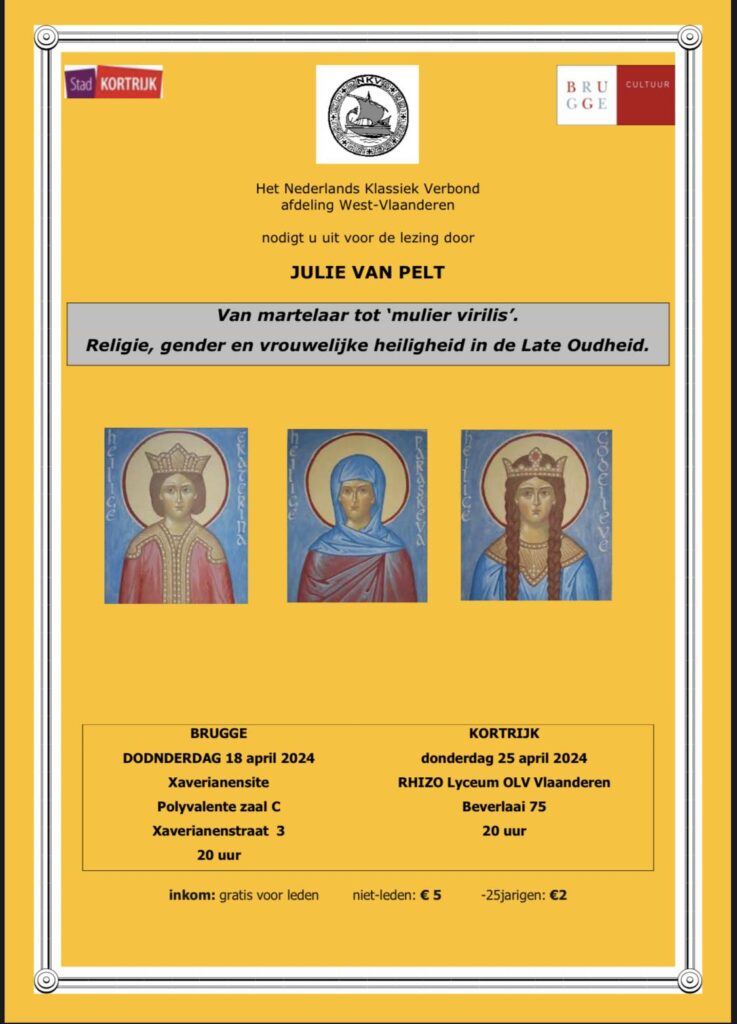The Novel Echoes research group warmly invites you to a research paper by Prof. Megan Moore (University of Missouri) on Weds 2nd April at 3pm at Ghent University (Faculteitsraadzaal, Blandijnberg 2, Campus Boekentoren) entitled “Ecologies of Resistance: Transformative Disabilities in Medieval Romance.”
Prof. Moore is a medievalist whose research explores gender, identity, and cross-cultural exchange in the medieval Mediterranean and who is currently Professor of French and Chair of the School of Languages, Literatures, and Cultures at the University of Missouri in the United States. Her current research project focuses on feminist ecocriticism, disability studies, trans* studies, and critical conversations about space, including non-representational geography, to explore a potential remapping of medieval courtliness in which non-dominant subjects’ and their bodies’ performance of space is integral to medieval ways of knowing, and to the idea of the court itself. By imagining nondominant spaces–say, the forest, with its hideous, outcast creatures–as integral to the geographies of medieval knowledge, this new project seeks to redefine the spatial ecologies of medieval romance.
Please contact Claire.Jackson@UGent.be in the case of any questions or requests for further information. We look forward to seeing many of you there!
On 20th November at 4pm, guest researcher Carlos Amado Román will give a presentation entitled ‘What words would the hero say in the face of danger? Ethopoeia in Achilles Tatius’ Leucippe and Clitophon’.
Abstract: Progymnasmata play a key role in the composition of ancient Greek novels. One of the most profitable exercises for their authors was the ethopoeia, since it allowed the introduction of direct speeches. However, novelists did not simply follow the recommendations prescribed by the rhetors, but rather adapted them to their needs. My aim is to analyse the presence of the ethopoeia in Leucippe and Clitophon, delving into its narrative implications and the differences between its use in Achilles Tatius and in other novelists.
All welcome. Contact evelien.bracke@ugent.be for information.
The Novel Echoes group is happy to invite you to listen to Rafael Semedo, who will give a paper on Quintus of Smyrna’s Posthomerica on Monday 25th of March, 4pm in Camelot.
Title: Live Fast, Die Young: Penthesilea’s Aristeia in Quintus’ Posthomerica 1
Abstract: Each of the 14 Books of Quintus’ Posthomerica is centered around a single character or event – it is therefore often referred to as an episodic epic. Book 1 revolves around the figure of Penthesilea, the queen of the Amazons, who, along with her female warriors, arrives at Priam’s citadel to boost spirits of the Trojans and encourage them back into the fight. The Quintean narrator accentuates her protagonism using an important traditional epic device, the aristeia, which is comprised of a series of type-scenes, including her arming, departure for battle, and killing frenzy on the battlefield. The outcome is her own death at the hands of Achilles. In this paper, we explore the strategies of the Quintean narrator to provide this female warrior with a solid characterization, which, in turn, also contributes to the overall portrayal of Achilles, the central figure of Books 1-5 as a whole. I argue that Penthesilea serves as a character doublet of Achilles, a miniature version of the Iliadic warrior, and her death at his hands actually foreshadows his own demise by the arrows of Apollo in Book 3.
Rafael de A. Semêdo, São Paulo Research Foundation, University of São Paulo; Visiting Ph.D. Scholar, University of Amsterdam
The second international conference on Early Christian Literature, Late Antiquity and Byzantine Hagiography this year is on the theme of ‘Imitationes Christi and women martyrs’ starts in Valencia. Three of our researchers will be presenting! Koen De Temmerman is one of the keynote speakers, Julie Van Pelt is a member of the Comité Científico and is giving a paper, and Emma Huig is also presenting her research.
More information here.
Together with Professor Riccardo Contini, Mara Nicosia is the organizer of the atelier “Lexicologie et lexicographie syriaque” at the 13th Symposium Syriacum (Paris, 4th-9th July 2022). More information soon.
Dr Mara Nicosia will talk about ‘The Hellenistic Enkyklios Paideia (‘Circular Education’) in the Syriac World: The Role of Rhetoric in Shaping the ‘Classic’’ for the ERC-project PAIXUE at Edinburgh University. More information here.
The Literature Department invites you to the following lecture on Thursday 17th December at 12 noon. Claire Jackson and Koen De Temmerman will introduce the Novel Echoes project: “Novel Echoes: Receptions of the Ancient Novel in Postclassical Traditions”.
More information and the zoom link on the website of the Literature Department: https://www.letterkunde.ugent.be/nl/agenda/5239.
Organizer: LSW
Margaret Mullett (Queen’s University Belfast) Performability, Lament, and the Christos Paschon’. (Lezing “Meet the PhD Jury”).
Owen Hodkinson (University of Leeds): “The reception of Philostratus’ Letters in Oxford ‘Uranian’ circles”
